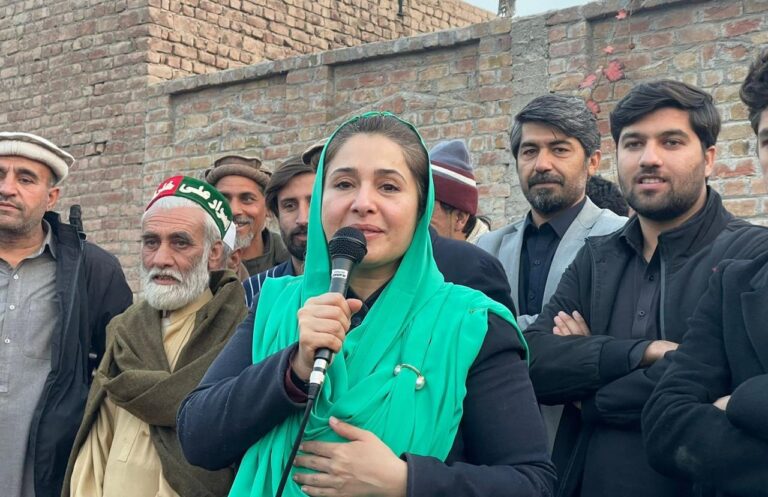ISLAMABAD: In the run-up to Saturday’s general elections in Pakistan, a stark reality emerges regarding the lack of priority placed on women’s representation within political parties.
The Free and Fair Election Network (FAFEN), which monitors polls in the country, reported that out of a total of 6,037 candidates vying for general seats nationwide, only 275 are women, constituting a mere 4.6 percent participation rate in the elections.
This figure falls well below the legal requirement of a minimum five percent representation mandated by Section 206 of the Elections Act, 2017. This mandate extends to elective offices, including seats in the Majlis-e-Shoora (Parliament) and Provincial Assemblies.
FAFEN’s report revealed that out of 111 political parties, only 30 have met or surpassed the required five percent representation of women candidates. An additional four parties come close, with percentages ranging between 4.50 and 4.99. However, a significant portion of parties, numbering 77, have failed to meet even the minimum 4.50 percent threshold, indicating a systemic neglect of women’s participation.
The disparity in women’s representation is evident across different elective bodies.
In the National Assembly, for instance, where 94 parties have fielded candidates, only 92 women are among the 1,872 total candidates, making up a mere 4.91 percent. Similarly, the Punjab Assembly records a dismal 3.09 percent representation of women, with 58 female candidates out of 1,878.
Comparatively, the Sindh Assembly exhibits a slightly better representation, with 59 women among 948 candidates, constituting 6.22 percent. In Balochistan, however, the figures are alarmingly low, with only 19 women contesting out of the total candidates, amounting to a mere 3.56 percent.
Despite these sobering statistics, there are glimmers of hope in Khyber Pakhtunkhwa (KP), which stands out as a leading province in terms of women’s representation. With 5.83 percent of the total, KP sees 47 women candidates out of 806 contesting for the provincial assembly, representing 44 parties. This underscores a positive trend towards gender inclusivity in the political landscape of the region. Mostly women are contesting on contested seats including ANP Samar Haroon Bilour and PTI Shandana Gulzar Khan and Momina Basit.
Samar Haroon Bilour contested on seat which she had won in the 2013 by election while Shandana Gulzar contesting on NA-32 which PTI had won in 2013 and 2018 general elections.
However, the issue of non-compliance with the mandatory quota for women candidates has prompted legal action, with a petition filed in the Islamabad High Court (IHC) seeking accountability from political parties. The petition, spearheaded by the Aurat Foundation, calls attention to the stark disparities among parties, emphasizing the adherence of only a few, such as PML-N and MQM-P, to the mandated five-percent quota for women candidates on general seats.
As Pakistan prepares for its upcoming elections, the glaring gap in women’s representation remains a critical challenge, underscoring the urgent need for systemic reforms to ensure equitable political participation for all citizens.


